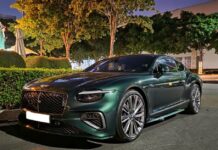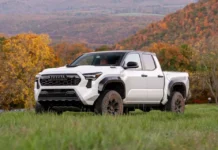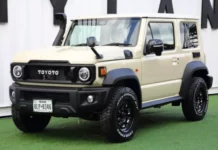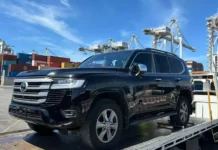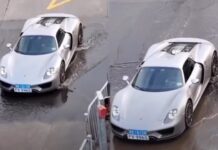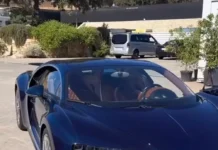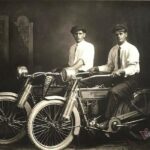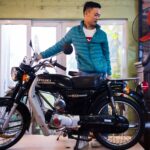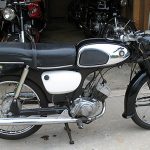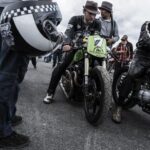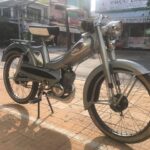“Moto Circus” is the name of a motorcycle shop on Phung Hung Street, Hanoi. The shop may not stand out with its advertising signs, but it houses more than a dozen American bikes such as the Rebel, Harley Davidson Fat Boy, Honda VTX, as well as Japanese Spacy scooters and Thai Honda Dream, all of which are unique. These bikes are part of a collection of 40-50 motorcycles that Do Quang Tu (born in 1977, Hanoi) has carefully sought, collected, and sold.
Among the collection, Tu places a 1999 Honda Cub at the center, which stands out despite not being the most expensive or unique bike. The Honda brand reminds him of his start in the industry 30 years ago when he was just a 15-year-old boy following his father to import Japanese motorcycles to sell.
Even when he became a well-known motorcycle dealer in Hanoi, Tu never gave up his circus career. He used to be a talented aerial acrobat in the 90s, winning numerous gold and silver medals at national and international circus festivals.
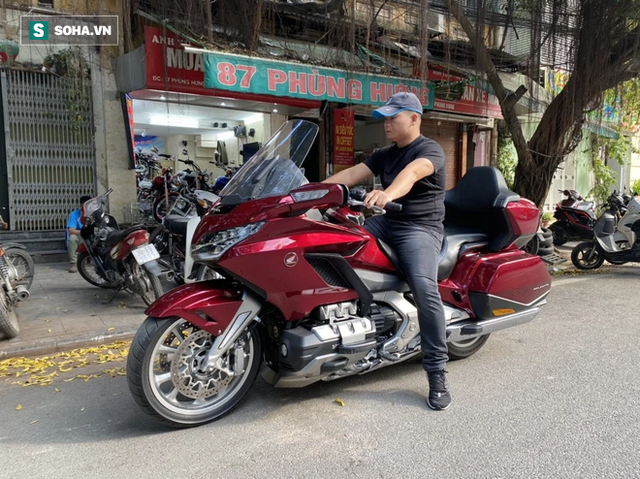
“Motorcycles in my blood”
Tu recalls that in the 90s, many motorcycles were imported into Vietnam. These bikes were valued at the price of gold or thousands of dollars. They became a symbol of the owner’s “coolness”. Riding a Dream in the early 90s was as classy as riding a Honda SH today.
In addition to new imported bikes, pre-owned Japanese bikes (or “used bikes”) were highly favored by Vietnamese customers because of their beautiful and durable design.
Coming from a family of motorcycle traders, at the age of 15, while studying at the circus school, Tu also helped with the family business. He followed his father to unload containers and import Cub and Dream bikes from Japan to sell.
Being the youngest among the group of “used bike hunters”, Tu proved to be just as skilled as the experienced ones in finding good bikes quickly and importing the largest batches.
The bikes from the container were shipped to Vietnam via the sea, passing through Cambodia and taking up to 6 months to arrive. There were cases of bikes with engine problems or parts corroded by saltwater, and some models were challenging if encountered.
“If you mistakenly pick a 3-digit 81 Presscub, when bringing it back, you have to replace more than 40 parts to make it compatible as a normal bike, so you end up in a loss,” Tu said.
Tu gradually became friends with the container owners, using his memory skills to memorize frame numbers and engine numbers of each bike model to help them create a list of goods. He understood that knowing what kind of bikes were in a container would give him a higher chance of winning the bid.
Over time, his work became more convenient. Now in his 40s, Tu owns a collection of Cub, Rebel, Spacy, and Dream bikes, each worth hundreds of millions of dong.
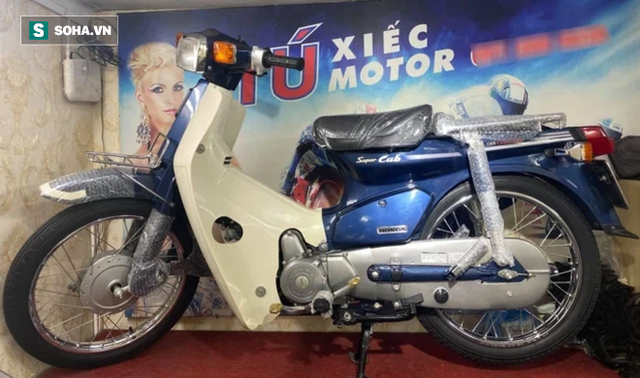
Tu’s legendary Honda Super Cub worth 200 million.
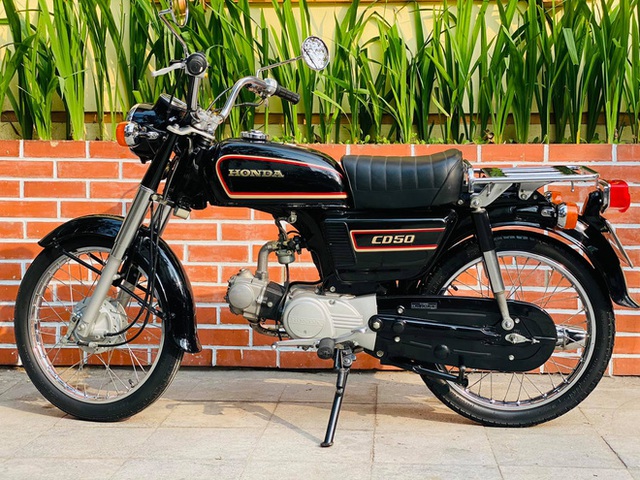
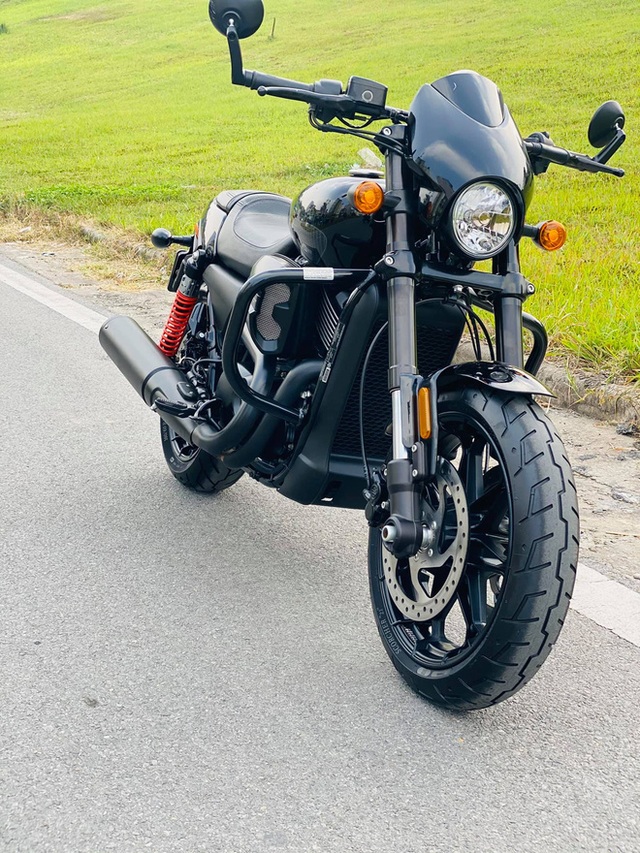
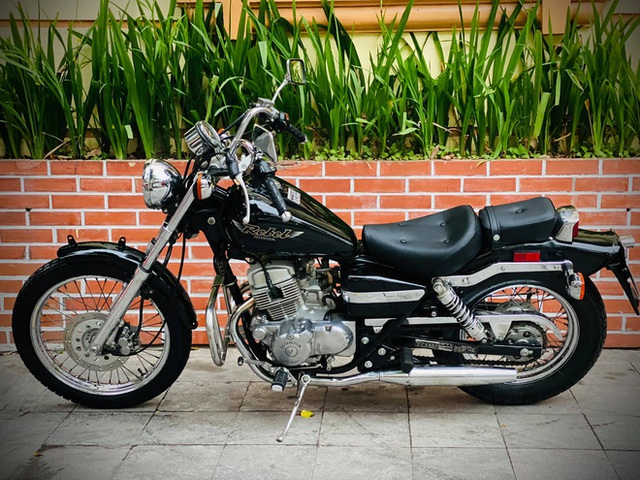
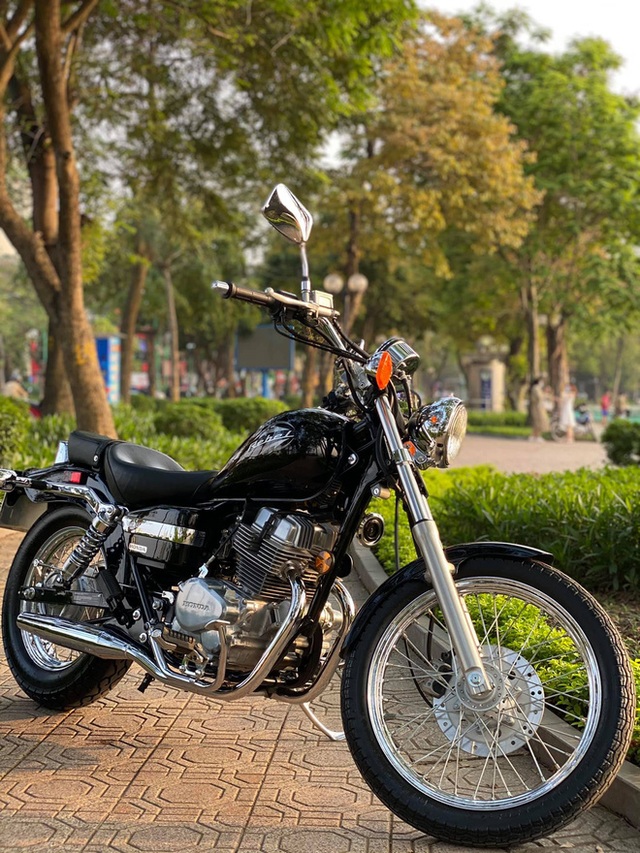
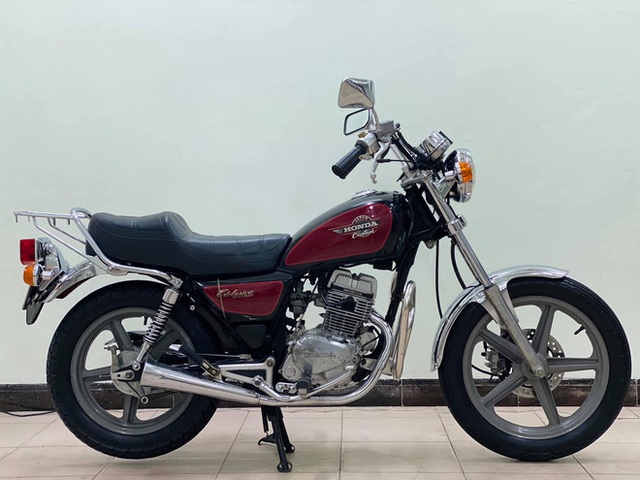
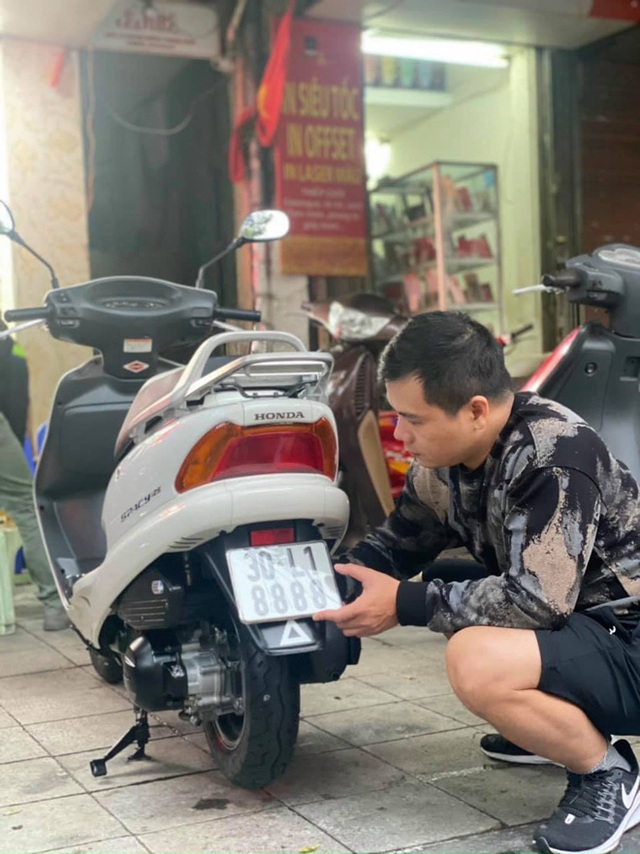
Tu’s collection of motorcycle bikes.
Running a business requires detailed calculations, but Tu has never hesitated to spend on the bikes he loves.
From the past, the young owner was famous for his willingness to spend nearly $1,300 to buy a prestigious Cub bike that was priced at $800 back then.
Until now, in his home in Than Street, Tu still keeps a 82-year-old Motobecane DS45 – a bike that Emperor Bao Dai used to favor. He bought this bike from a seller in the Southwestern region for a high price of $20,000 (approximately 470 million dong). At its peak in 2016, because of his strong liking for the Spacy model, he owned around 30 bikes of different models.
With a small house full of scrap motorcycles, Tu’s mother once suggested selling some of them, but he refused.
“What I have is not something everyone can have because they are original vintage motorcycles from famous brands, truly beautiful. The motorcycle business is truly in my blood,” the shop owner confided.
“For me, the circus is my destiny, a place for me to be kind and careful”
Tu attended the circus school to complete his studies. However, he unexpectedly found his calling in aerial acrobatics. Long stints performing abroad for several months affected his business, but he persisted in his circus career.
Now, even as the renowned owner of a well-established dealership in the vintage motorcycle field in Hanoi, Tu has stayed connected to the circus. He is responsible for the safety of aerial acts at the National Circus Theater.
“For me, the circus is my destiny, a place for me to be kind and careful,” Tu said.
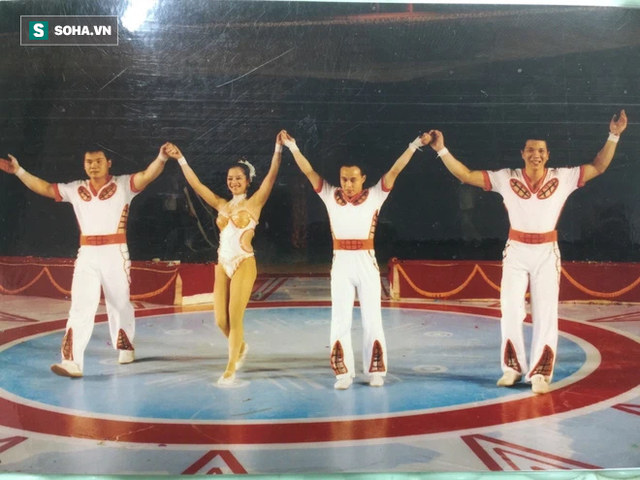
Do Quang Tu (leftmost) with his colleagues performing at the circus.
Tu recounted an incident when he was performing in Taiwan. The management called him privately after the show and promised to pay him extra if he purposely failed to catch his partner. They said that if there was no fall, the act wouldn’t be as thrilling, and suggested he should fail to catch his partner once or twice to please the audience. But Tu declined, despite the offer that was worth several months of motorcycle trading income.
“All I need is to hesitate and catch my partner once, then he will be scared and lose confidence in flying. In this industry, I understand the danger, even the risk of losing my life. That’s why I would never do that,” he said.
In 2006, during a circus festival in Hue, Tu’s circus group had to climb a much higher metal structure built inside an arena than their usual circus tent. “When we won the gold medal, we teased each other, saying maybe the organizers saw how high we climbed and decided to give us the gold medal right away,” he recalled.
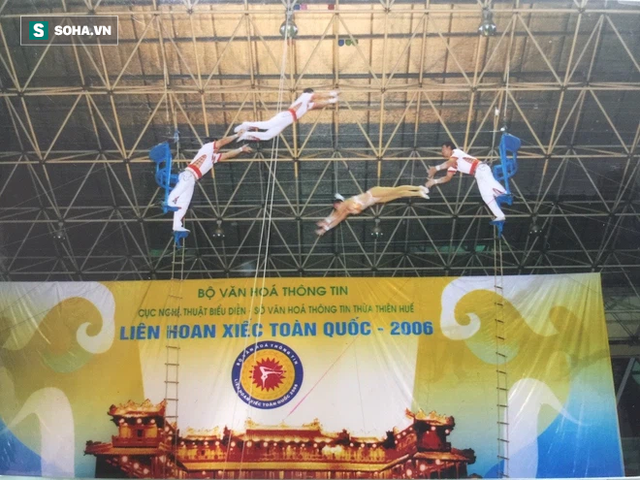
In 2006, Do Anh Tu’s aerial act with a quang truc (aerial bar) won the Gold Medal at the national circus festival.
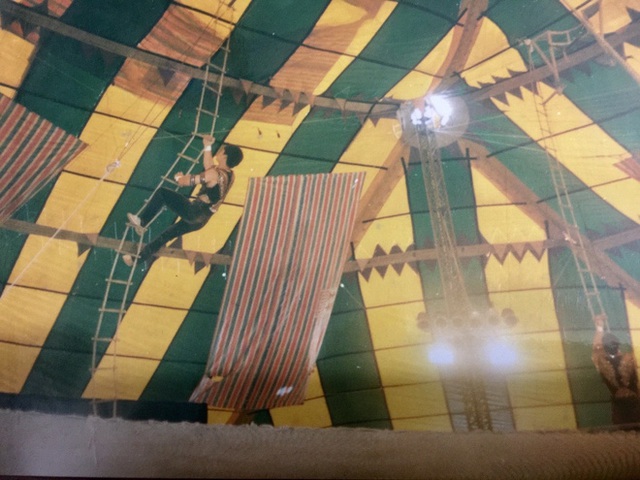
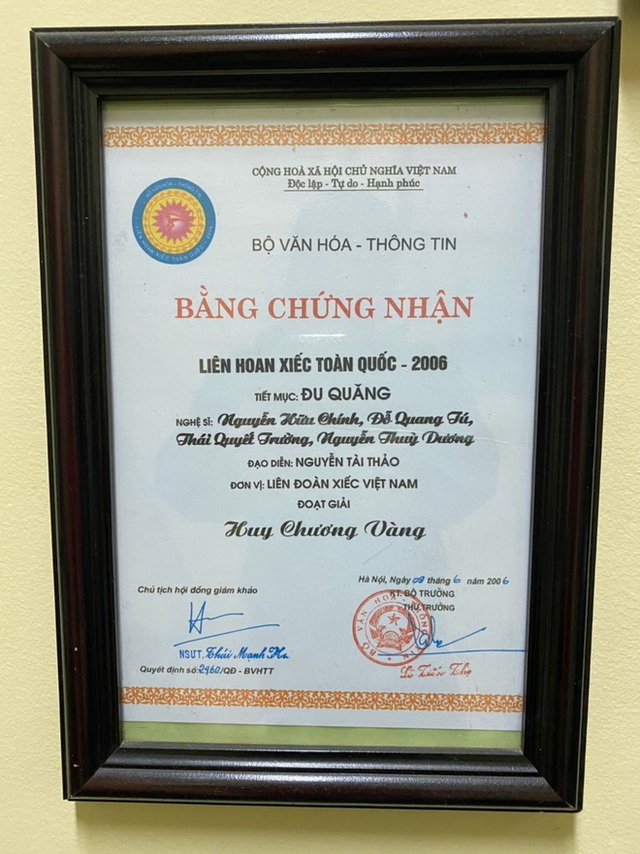
The process of preparing for a circus act requires meticulousness. Only for aerial acts, it can take up to a week to set up the metal structure properly. Over time, this process has become quicker, but before performing, Tu and his colleagues only have about 10 minutes to check their props and rest for 5 minutes to relax their muscles before performing. Every step is timed precisely to ensure a smooth performance.
Reflecting on these experiences, Tu appreciates how the circus has taught him discipline, dexterity, and lessons that he applies in the motorcycle business.
There have been cases when Tu delivered bikes to customers, but due to certain reasons, he had to take them back. Despite the effort put into finding beautiful and carefully selected bikes, he accepted the return and sometimes had to wait several years before being able to sell them. Or with each bike model having its own unique characteristics, sometimes due to the influence of the local climate, starting the bike can be problematic. In such cases, Tu promptly provides support and explanations to help customers understand.
Because of his commitment to providing good motorcycles, although his shop is located in Hanoi, Tu has many customers from other provinces. Most customers only see the bikes through photos on Facebook and then call and transfer hundreds of millions of dong to him without any hesitation.
“I believed that just like setting up a prop or preparing a metal structure, I must be careful, check everything with my own hands, and ensure safety for my colleagues. Similarly, when selling motorcycles, I must be just as careful,” Tu said.
Cafe Racer Festival 2016 – Where Passion Meets
The Cafe Racer 2016 festival, held annually for the past 4 years, is a gathering for passionate vintage motorcycle enthusiasts who share a love for speed, the sound of engines, and the thrill of the open road. It is a unique opportunity for bikers to come together, showcase their prized machines, and test their skills in a friendly and competitive atmosphere.



